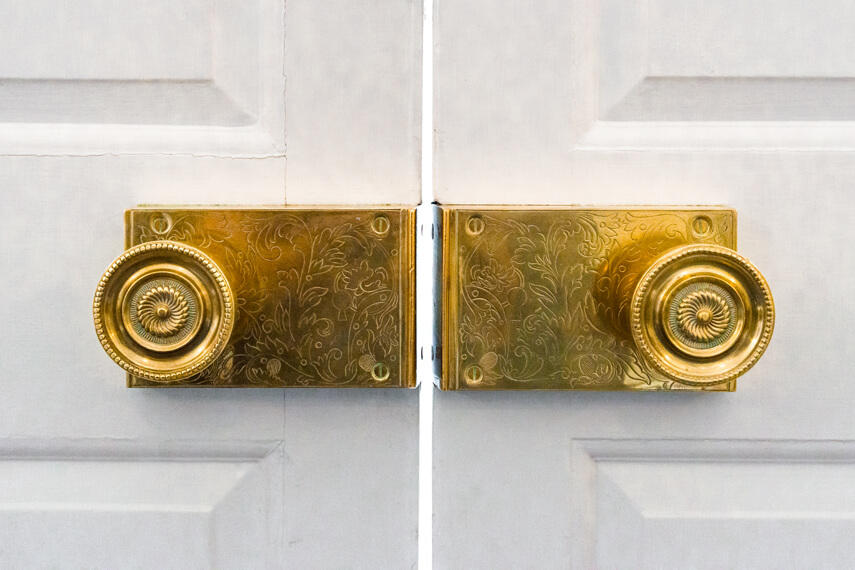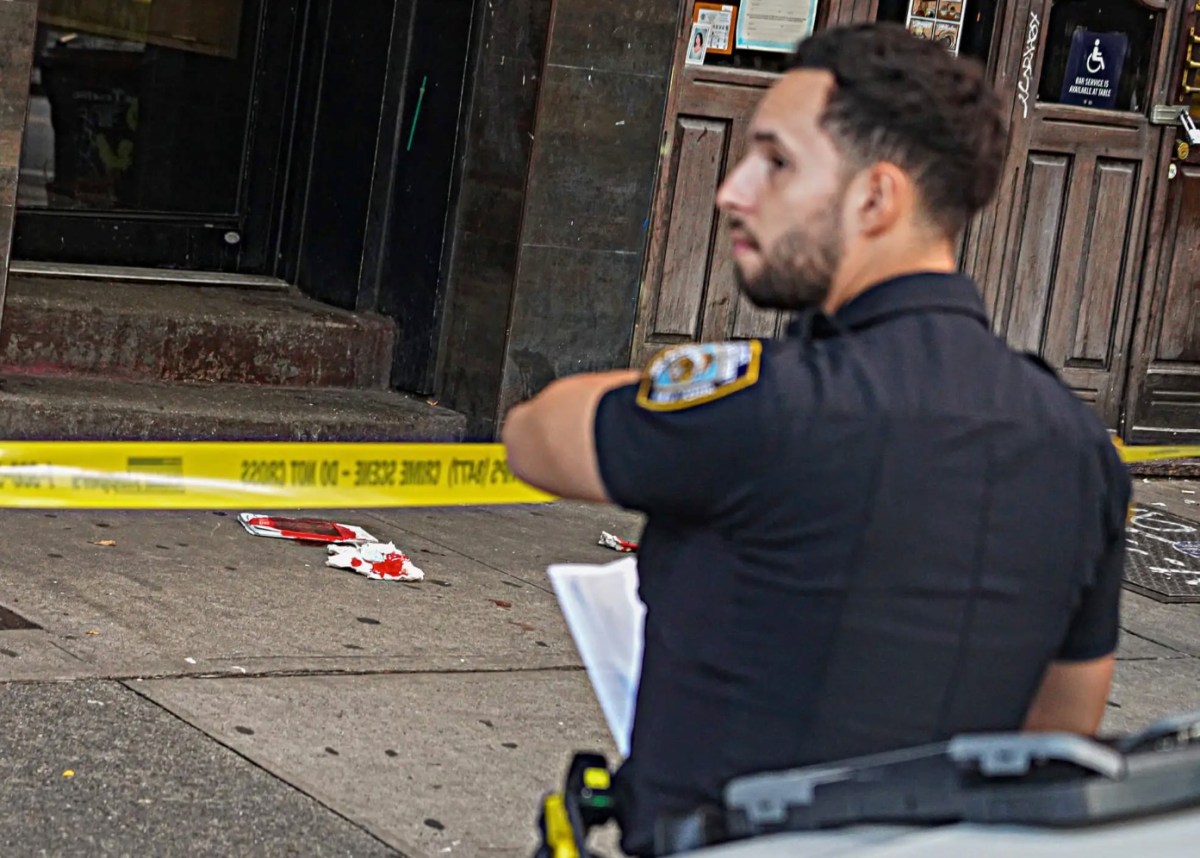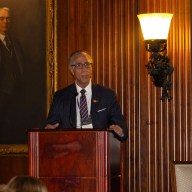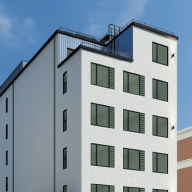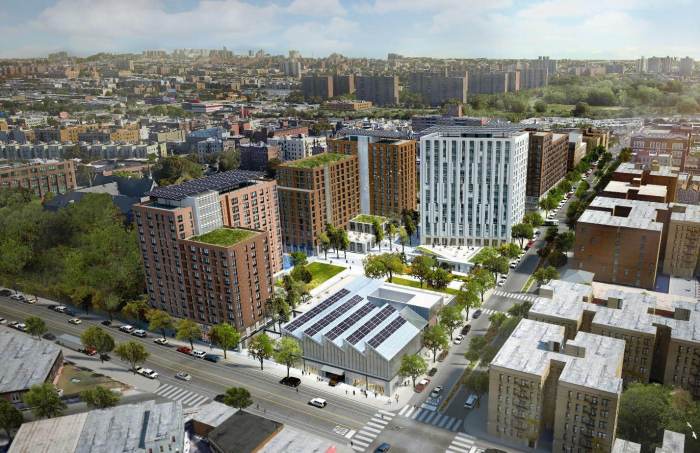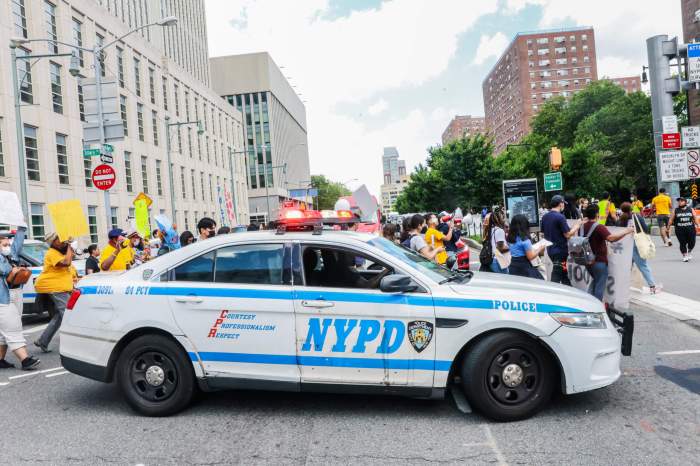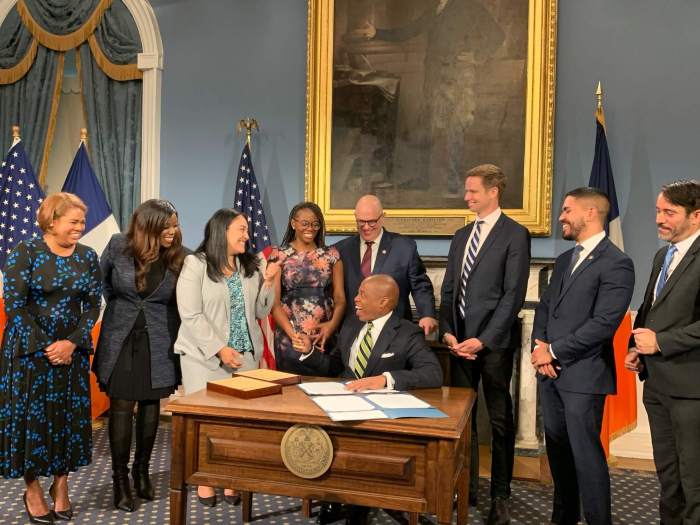On Aug. 10, an often overlooked group of elected officials — Dominican women, from state and local politicians to those who are first in several city industries — said they felt further invisible and invalidated at an event intended to celebrate the progress that New York’s leading Dominican community has made.
Despite the event, hosted by Mayor Eric Adams, honoring two Dominican women with nine women elected officials on stage for the event, Bronx politicos who attended the event told the Bronx Times they are “disappointed” that no women were given an opportunity to speak.
The only people to speak at the Gracie Mansion event was the mayor, U.S. Rep. Adriano Espaillat, Department of Transportation Commissioner Ydanis Rodriguez and state Sen. Luis Sepulveda — a non-Dominican. Many women took exception to the lack of speaking time for Latina elected officials such as state Assemblymember Karines Reyes, City Councilmember Carmen de la Rosa, and state Assemblymember Amanda Septimo, who stood on stage in the background.
“It’s like a chicken and egg situation where women in the Dominican community generally are just not having their voices valued, and women in political circles are often erased or invalidated by their peers,” said Septimo, who has been civically engaged in the Bronx dating back to 2005.”There were two women who were honored (that night), they had all of the elected officials in attendance up on the stage, many of us, Dominican women, elected officials, and no woman spoke or was given a chance to speak.”
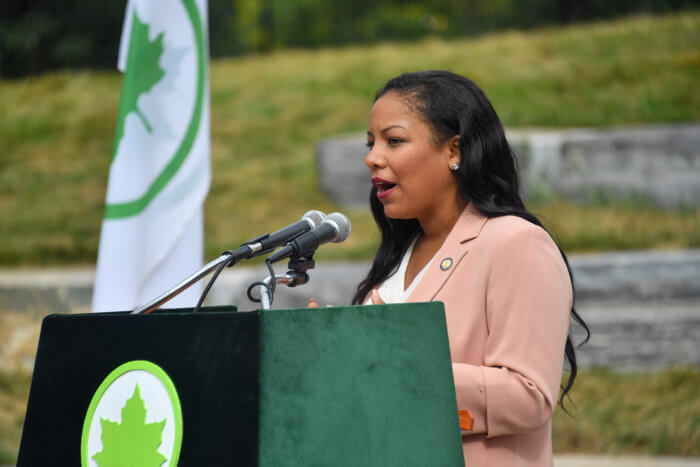
The feelings of invisibility from NYC’s women of color in politics weren’t just felt at Wednesday’s Dominican Heritage Event, but also an event celebrating NYC’s Mexican communities — where no women spoke — according to City Councilmember Alexa Aviles.
A spokesperson from Adams’ office told the Bronx Times they didn’t understand the criticism citing that women at the event were on stage, publicly thanked and received certificates from the mayor. For some, that’s not enough.
“As contributors and participants in every issue that affects our families, we Dominican women felt left out last night at Gracie Mansion Dominican Heritage celebration,” said state Assemblymember Yudelka Tapia, who represents Kingsbridge, Tremont and Fordham. “All participants and speakers were men. We demand respect and inclusion in every space where decisions are made.”
And this isn’t the first time Latina politicos have been felt excluded from city events. At the Bronx Dominican Day parade on July 31, politicos who attended the parade said it took about “12 male speakers” before Bronx Borough President Vanessa Gibson, Septimo and other women had the opportunity to offer their remarks.
A political metamorphosis took shape in New York’s 2021 election cycle. In January, the incoming City Council was historic with the ushering of new terms for 31 women — with 86% of those women of color — marking the legislative body’s first female majority.
Latina candidates also began making waves in state politics, securing seats on the state level in 2021 and on pace to expand their influence in 2022, with several races that might yield the first Latinas elected to their seats, most notably the 33rd District and 34th District state Senate races.
Of 7,383 state lawmakers in the U.S., 2,259 (or 31%) are women, according to the National Conference of State Legislatures. Of the 451 Hispanic state lawmakers, 195 are women — 43% — the most recent data found.
“It’s not that women don’t exist in power. It’s not that they aren’t women leading, mobilizing and representing this city and state in and out office,” said Septimo. “It’s that it’s not being meaningfully acknowledged, that us as women are not being acknowledged and it’s a bad habit, and it’s a pattern.”
A first generation immigrant from the neighborhood of Los Minas in Santo Domingo, Reyes said she’s had to elbow her way into both Latino and political spaces, and commonly feels “overlooked” as a young Latina in politics, both by her male colleagues and some constituents.
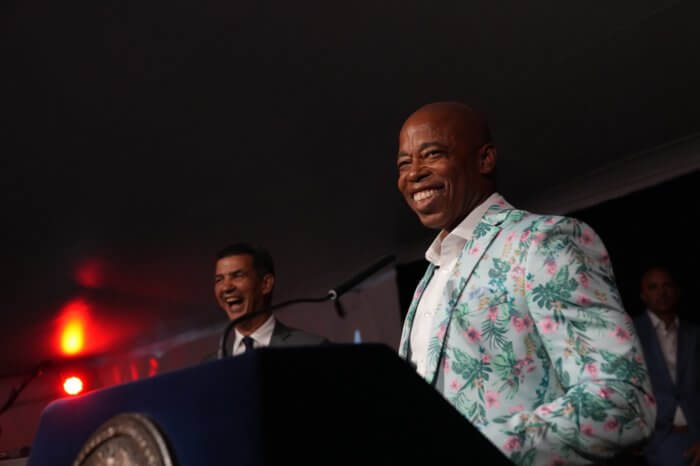
“It’s a gender-balance that exists in our city and Dominican diaspora,” said Reyes. “So as a Dominican-led delegation of women we realized that we have to stick together in order to be heard and and we have been very deliberate about checking in with each other on … whenever we make political moves, political decisions, when we organize.”
And while no experience is monolithic, women electeds of color find solace in solidarity amongst other women of color in political spaces, but note that allyship is not always reciprocated by their male peers.
Reach Robbie Sequeira at rsequeira@schnepsmedia.com or (718) 260-4599. For more coverage, follow us on Twitter, Facebook and Instagram @bronxtimes

